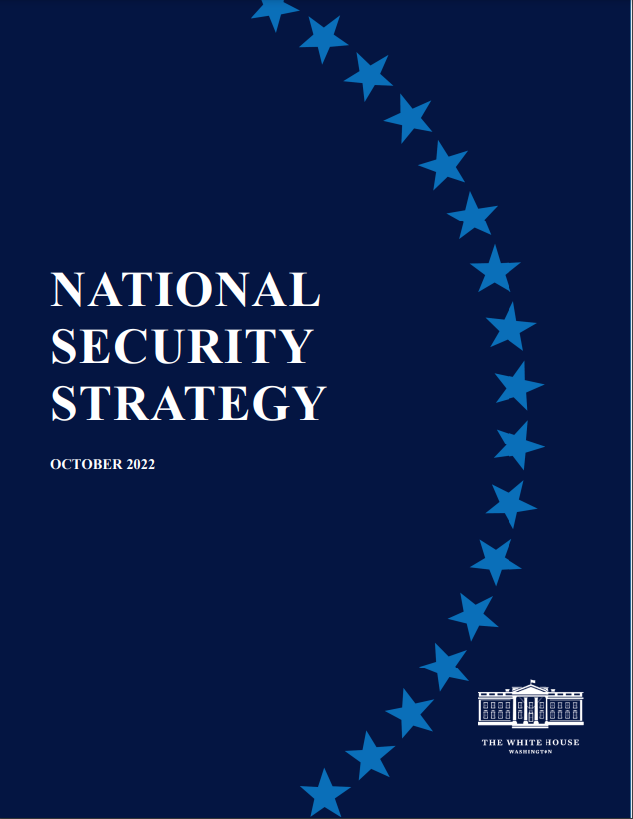Zhang Yun, Professor, School of International Relations, Nanjing University
Jan 03, 2023
Mimicking the American-style approach of guarding against imaginary enemies, Japan’s recently released documents will have a significant impact on relations with China and other countries. Its effort to achieve strategic autonomy is a tall order, as the U.S. doesn’t want too much of that.
Joseph S. Nye, Professor, Harvard University
Dec 04, 2022
Could the United States and China go to war over Taiwan? China regards the island 90 miles (145 kilometers) off its coast as a renegade province, and President Xi Jinping raised the issue at the recent 20th Congress of the Communist Party of China (CPC). Though Xi said he prefers reunification by peaceful means, his objective was clear, and he did not rule out the use of force. Meanwhile, in Taiwan, the share of the population identifying as solely Taiwanese continues to exceed the share that identifies as both Chinese and Taiwanese.
He Wenping, Senior Research Fellow, Charhar Institute and West Asia and Africa Studies Institute of the China Academy of Social Sciences
Nov 14, 2022
Peaceful development and capacity building are the two cornerstones of China’s philosophy, and the panda movie provides an apt analogy. Under the rules of the jungle, the panda, which is docile by nature and non-aggressive, wants to live in harmony with other animals.
Zhang Yun, Professor, School of International Relations, Nanjing University
Oct 27, 2022
When the Biden administration speaks of challenges to the liberal international order, it should be understood that U.S. anxiety over the “authoritarianism” it attributes to China and Russia is an external projection of internal domestic ideological contradictions and external troubles.
Li Tian, Commentator on current affairs
Oct 27, 2022
Foreigners have hyped the possibility that Beijing will resort to reunification by force. This creates a dilemma: China must either accept the prospect of secession or the destructive consequences of force. Escaping this trap will require joint efforts by Chinese people on both sides of the strait.

David Shambaugh, Gaston Sigur Professor and Director of China Policy Program at George Washington University, Distinguished Visiting Fellow at Hoover Institution of Stanford University
Oct 21, 2022
After nearly two years in office, the Biden administration recently published its National Security Strategy. The 48-page document covers the broad spectrum of national security and foreign policy challenges to the United States, prominently including the People’s Republic of China.

Zhao Minghao, Professor, Institute of International Studies at Fudan University, and China Forum Expert
Oct 21, 2022
It’s clear that the United States is determined to win its competition with China. Therefore, China should prepare for greater pressure from the U.S. during what the newly released National Security Strategy calls the “decisive decade” ahead.
Nicola Casarini, Senior Fellow, Istituto Affari Internazionali
Oct 20, 2022
Europe has stepped up its engagement with Taiwan to a level unthinkable only a few years ago - a dynamic which is welcomed in Washington but risks triggering commercial reprisals from Beijing. If not managed carefully, such actions threaten to reduce Europe’s diplomatic leeway and ability to contribute to a peaceful solution of Cross-Strait relations. The EU should urgently set up a high-level communication channel with Beijing to complement the transatlantic dialogue on the Indo-Pacific established last year.
Zhong Yin, Research Professor, Research Institute of Global Chinese and Area Studies, Beijing Language and Culture University
Oct 20, 2022
There are many imperfections and contradictions in the latest NSS. It’s hard enough to promote fairness and justice in the world, so how does one balance a strategy that puts U.S. interests and the well-being of Americans ahead of everyone else?
Sun Chenghao, Fellow, Center for International Security and Strategy of Tsinghua University; Munich Young Leader 2025
Zhang Ding, Assistant Research Fellow, D&C Think Tank
Oct 20, 2022
The new U.S. National Security Strategy report reflects a certain anxiety within the Biden administration, which has not evolved materially beyond Trump. The strategy neither advances global peace nor prevents China-U.S. relations from sliding into confrontation.
Back to Top

- China-US Focus builds trust and understanding between the U.S. and China through open dialogue among thought leaders.
- Our Offerings
- Topics
- Videos
- Podcasts
- Columnists
- Research Reports
- Focus Digest
- Stay Connected
-
Thanks for signing up!
- Get the latest stories from China-US Focus weekly.